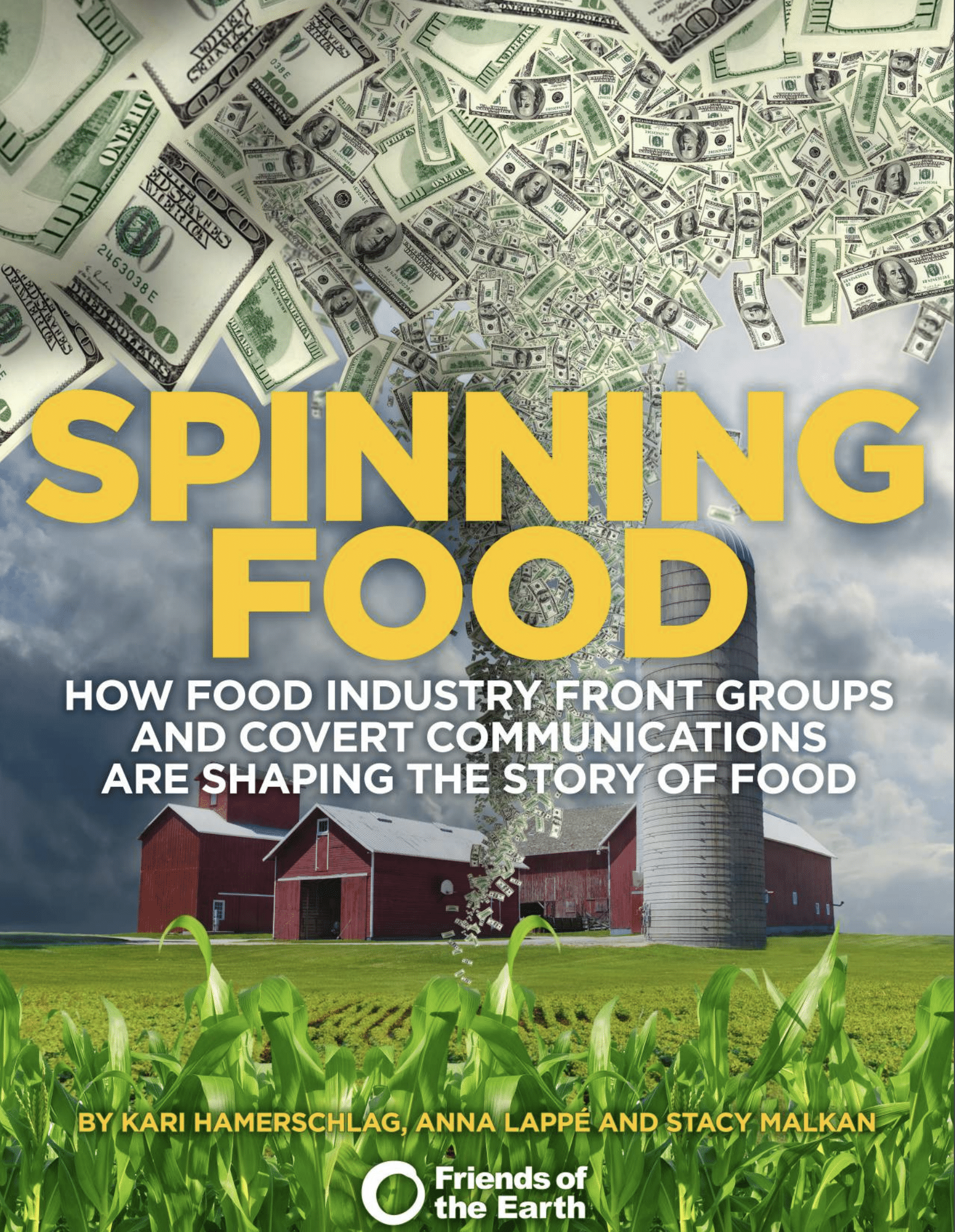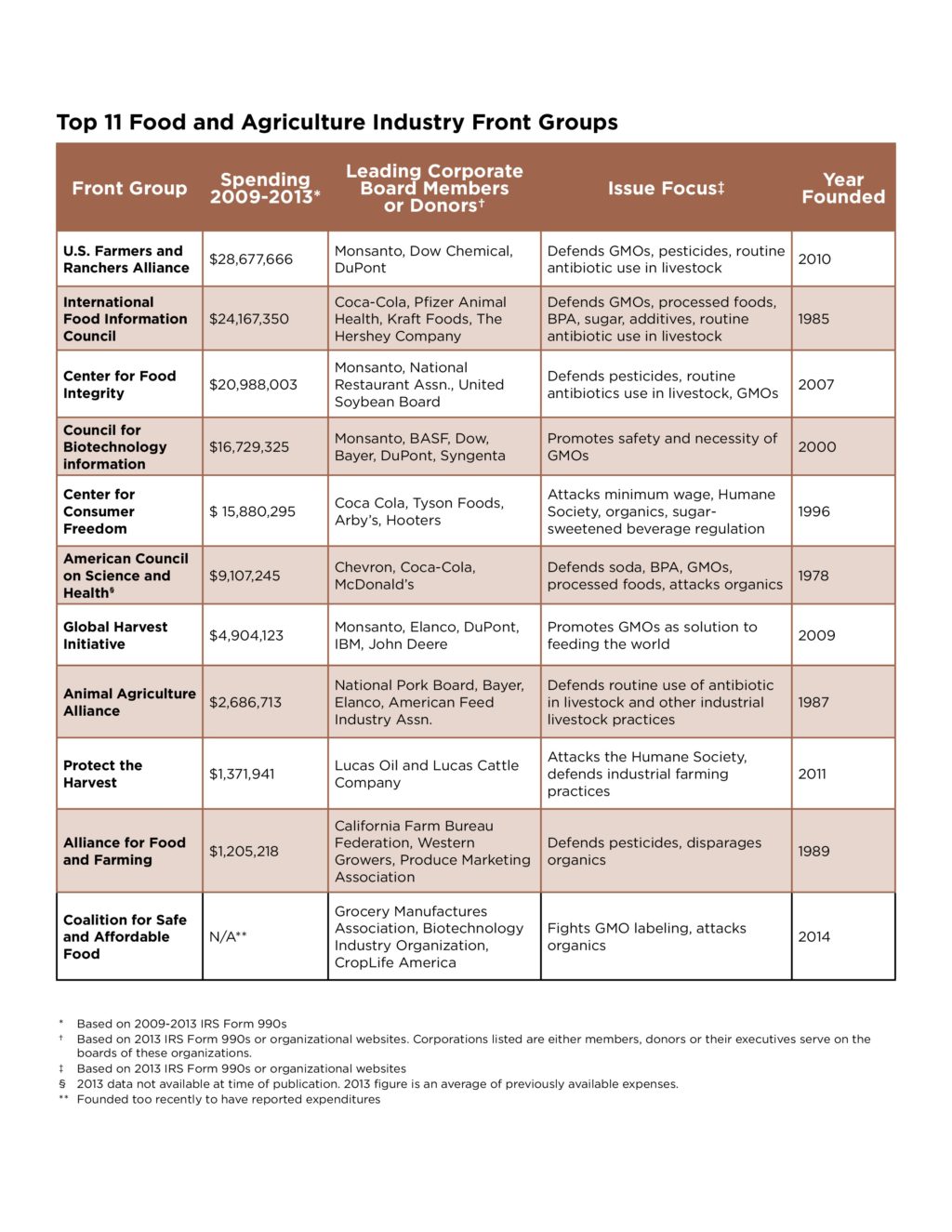Spinning Food

How food industry front groups and covert communications are shaping the story of food
Our new report, “Spinning Food,” investigates how Big Food and agrochemical corporations are deliberately misleading the public — and reporters — on facts about industrial agriculture and organic and sustainable food production.
Report
- Introduction
- Part I. The Messengers
- Part II. The Messages
- Part III. The Tactics
- Conclusion and Recommendations
- Annexes (including detailed information on Industry Trade and Front Groups)
Read the news release
See the chart of top front groups
Taking their cues from the tobacco industry, these companies have spent hundreds of millions of dollars in the past few years on stealth PR tactics, deploying over a dozen front groups to push coordinated messages attacking organic food production, defending pesticides and the routine use of antibiotics and promoting GMOs — messages that are making their way into the pages of our largest media outlets.
The report shows how these companies are trying to preserve their markets and advance policy agendas by deploying front groups; targeting moms, attacking journalists and scientists; grooming third-party allies that pose as independent sources; producing advertising disguised as editorial content and using other covert social media tactics to influence public opinion and sway policymakers — without most people realizing the story is being shaped behind the scenes to promote corporate interests.
This report aims to shed light on how the industrial food and agriculture sector is trying to defuse concerns about the real risks of chemical-intensive industrial agriculture and undermine public confidence in the benefits of organic food and diversified, ecological production systems. We hope this report helps reporters, policymakers, opinion leaders and the public bring increased scrutiny to the food industry’s messages and messengers. By revealing key groups and tactics used by industry, we also hope that it will help generate more balanced and accurate reporting on our food system.

Report Authors
Kari Hamerschlag, Senior Program Manager for Friends of the Earth’s Food and Technology Program Anna Lappé, a founding principal of the Small Planet Institute and the Small Planet Fund; head of the Real Food Media Project, a new initiative. Latest book: Diet for a Hot Planet: The Climate Crisis at the End of Your Fork and What You Can Do About It (Bloomsbury).
Stacy Malkan, co-founder of the U.S. Right to Know and Campaign for Safe Cosmetics, author of the award-winning book, Not Just a Pretty Face: The Ugly Side of the Beauty Industry (New Society). In 2012, media director for the California Right to Know ballot initiative (Prop 37) to label genetically engineered foods.
Ways to Support Our Work

Read Latest News
Stay informed and inspired. Read our latest press releases to see how we’re making a difference for the planet.

See Our Impact
See the real wins your support made possible. Read about the campaign wins we’ve fought for and won together.

Donate Today
Help power change. It takes support from environmental champions like you to build a more healthy and just world.